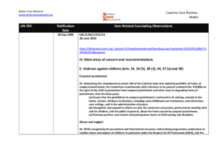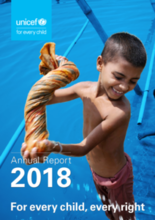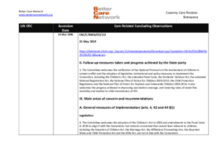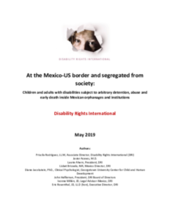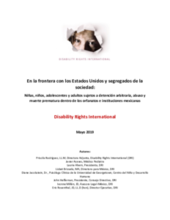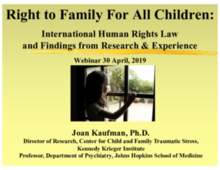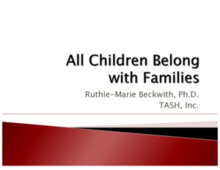Displaying 181 - 190 of 494
This country care review includes the care related Concluding Observations adopted by the Committee on the Rights of the Child and the Committee on the Rights of Persons with Disabilities.
In words, images, facts and figures, this report details the results that UNICEF achieved in 2018, together with its generous partners and supporters, a dedicated global workforce and children and young people themselves.
This country care review includes the care-related Concluding Observations adopted by the Committee on the Rights of the Child.
Disability Rights International (DRI) carried out two investigation trips to Baja California, Mexico, in November 2018 and February 2019, visiting four residential, private institutions for children and adults – including migrants - with disabilities. This report presents the findings from these investigations.
Disability Rights International (DRI) llevó a cabo dos investigaciones en Baja California, México –la primera en noviembre de 2018 y la segunda en febrero de 2019, visitando a cuatro instituciones privadas en las que se encuentran niñas, niños, adolescentes y personas –incluidas personas migrantes– con discapacidad. Este informe presenta los resultos de esta investigación.
This presentation, given at Disability Rights International and the European Network on Independent Living's webinar on the right of all children to a family, outlines the Consensus Statement Position on Group Care for Children and Adolescents of the American Orthopsychiatric Association and reviews the research on the detrimental effects of institutionalization on children from the Bucharest Early Intervention Project and other studies.
This presentation was given at Disability Rights International and the European Network on Independent Living's webinar on the right of all children to a family by Dr. Ruthie-Marie Beckwith.
With efforts underway at the international level to reconcile different approaches to the right of the child to grow up in a family – in the CRPD, CRC and the UN Guidelines – this webinar addressed some of the following questions: how to ensure every child can grow up in a family, is residential care justified in any circumstance, how to ensure that children growing up in group homes and other residential care settings are given an opportunity to access family-based care, and the right to independent living.
This paper describes the development of an evidence-informed family therapy intervention designed for lay counselor delivery in low-resource settings and presents findings on the feasibility and acceptability of implementation in Kenya.
This position paper outlines the position of Disability Rights International, European Network on Independent Living, and TASH on residential care and the right of all children to live and grow up in a family.

